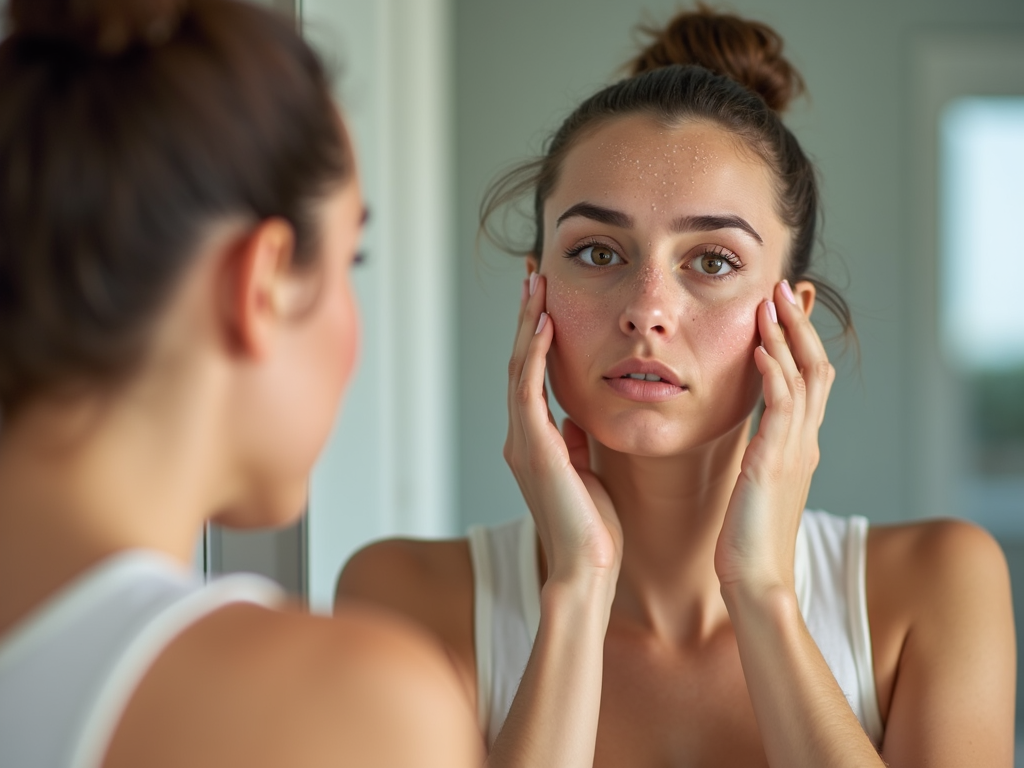Understanding Polycystic Ovary Syndrome (PCOS)
May 31, 2025, 7:39 a.m.
Polycystic Ovary Syndrome (PCOS) is a hormonal disorder affecting millions of women worldwide. It brings irregular periods, excess hair growth, acne, and sometimes infertility. Knowing what PCOS is and how it works helps women manage symptoms and live healthier lives.
What Is PCOS and Why Does It Matter?
Understanding Polycystic Ovary Syndrome (PCOS) starts with recognizing it as more than just a reproductive issue. It’s a condition where hormones get out of balance, often due to higher levels of androgens—sometimes called male hormones—and insulin resistance. This imbalance can cause weight gain, fatigue, and emotional stress.
I remember my diagnosis at 24. My periods were all over the place, and I felt embarrassed by the hair sprouting on my chin. It hit me hard, but learning about PCOS gave me a starting point to take control.
Roughly 1 in 10 women of reproductive age deal with PCOS, according to the National Institutes of Health (NIH). It’s common, yet many don’t realize they have it until symptoms pile up.

What Causes PCOS?
The common causes of ovulation disorders like PCOS aren’t fully pinned down, but experts point to a mix of genetics and lifestyle. If your mom or sister has it, your odds go up. Insulin resistance plays a big role too—it messes with hormone levels and can stop ovulation.
For me, finding out my aunt had PCOS made it click: this runs in my family. The Mayo Clinic explains that extra insulin can push ovaries to make more androgens, throwing everything off balance. Poor diet or stress might not cause PCOS, but they can make it worse.
The Symptoms You Can’t Ignore
PCOS shows up differently for everyone. Irregular periods are a hallmark—sometimes months apart. Excess hair growth (hirsutism), acne, and weight gain are common too. Ovulation disorders tied to PCOS can also lead to female infertility, making it tough to get pregnant.
I struggled with cystic acne in my late teens. I thought it was just bad luck until my doctor connected it to PCOS. The hair growth was the toughest part—shaving my face felt like a secret I couldn’t share.

How PCOS Affects Hormonal Health
Understanding Hormonal Health for Women means seeing how PCOS disrupts the body’s natural rhythm. Ovaries may develop small cysts, and ovulation can stall. This throws off estrogen, progesterone, and testosterone levels. Over time, it raises risks for diabetes, heart disease, and even endometrial cancer.
I didn’t realize how serious it was until my doctor explained the long-term risks. That’s when I started paying attention to my health—not just my appearance.
Managing PCOS: What Works
You can manage PCOS with a few smart steps. Diet and exercise top the list. Eating foods low in sugar—like veggies, whole grains, and lean proteins—helps with insulin resistance. Moving your body, even a brisk 30-minute walk daily, boosts energy and cuts weight gain.
Here’s a quick list of what helped me:
- Breakfast: Oatmeal with berries instead of sugary cereal.
- Exercise: Yoga or a walk after dinner.
- Sleep: At least 7 hours to keep stress low.
I lost 15 pounds over six months, and my periods got more regular. It wasn’t easy, but it worked.

Medication Options
Sometimes lifestyle isn’t enough, and that’s okay. Birth control pills can balance hormones and tame acne or hair growth. Metformin, often used for diabetes, helps with insulin resistance. If you’re facing female infertility, drugs like clomiphene can kickstart ovulation.
The American College of Obstetricians and Gynecologists (ACOG) backs these treatments. I started metformin after months of hesitation—it cut my cravings and steadied my energy.
The Emotional Side of PCOS
PCOS isn’t just physical. The symptoms and fertility worries can weigh on your mind. I felt alone until I found an online group where women shared their stories. Talking it out—whether with friends or a counselor—makes a difference.
One day, I broke down over not knowing if I’d have kids. A friend with PCOS told me her success story with treatment. It gave me hope.

Fertility and PCOS
Ovulation disorders are a big hurdle with PCOS, especially for those wanting a family. Treatments like letrozole or even IVF can help. It’s not a dead end—many women with PCOS have kids with the right support.
I’m not at that stage yet, but researching options calmed my fears. Knowing there’s a path forward matters.
Long-Term Health Tips
PCOS doesn’t go away, but you can keep it in check. Regular doctor visits catch issues like high blood sugar early. A balanced life—eating well, staying active, managing stress—keeps risks low.
Here’s a simple table of check-ups I follow:
| Check-Up | Frequency | Why It Helps |
|-------------------|-----------------|--------------------------|
| Blood sugar test | Yearly | Spots diabetes risk |
| Cholesterol | Every 2 years | Protects heart health |
| Pelvic exam | Yearly | Checks uterine health |
These steps keep me proactive.

Summary: Taking Charge of PCOS
Understanding Polycystic Ovary Syndrome (PCOS) empowers women to handle its challenges. It’s a mix of hormone issues, lifestyle tweaks, and sometimes medical help. With the right tools and support, you can ease symptoms, boost fertility, and protect your health for the long haul.